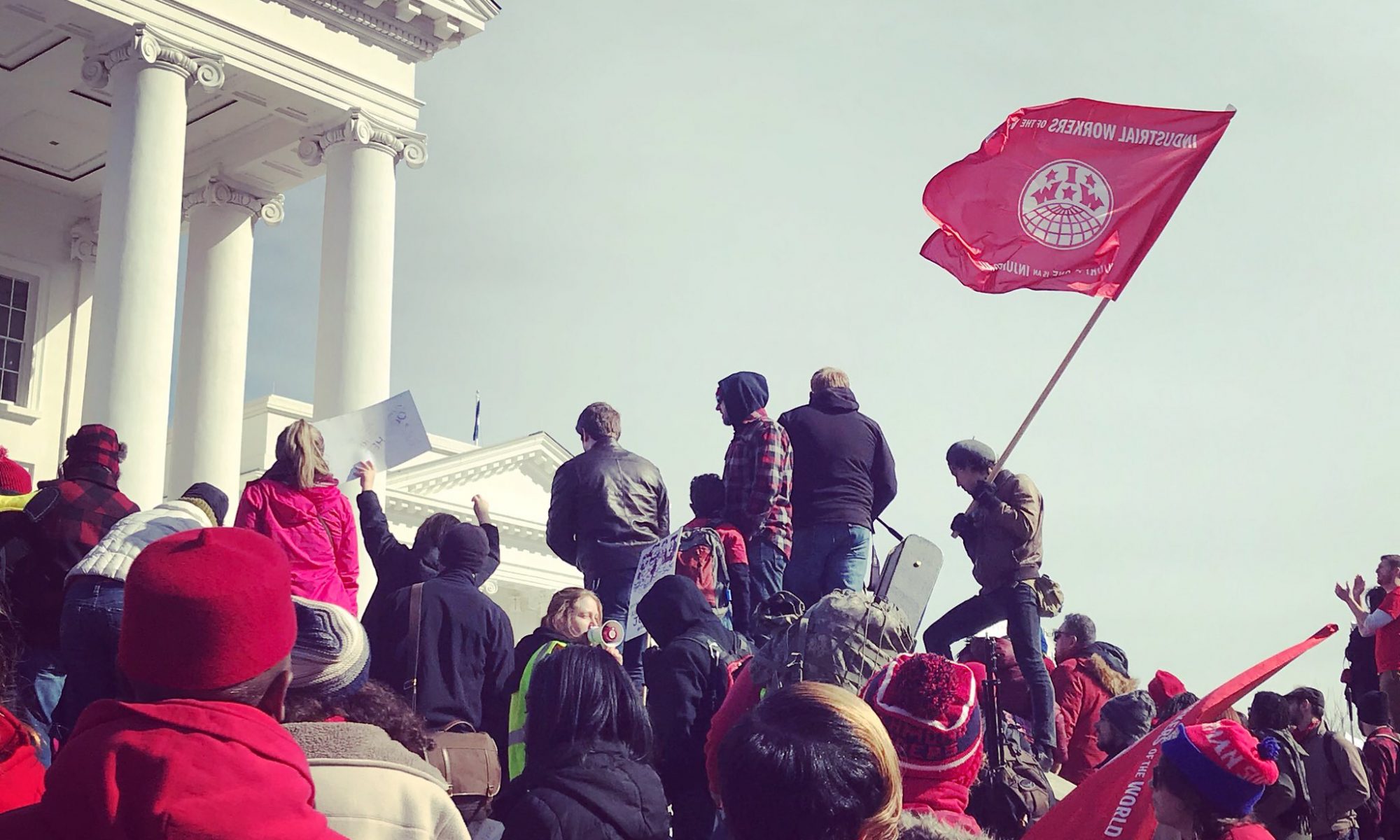
Who Does the IWW Organize?
We organize all workers. Since the beginning, we have organized across the artificial lines of race, ethnicity, sex, gender, sexuality, ability, language, nationality, and legal status. Immigrants of varying legal status, people of color, and women all played essential roles in the IWW’s founding and beyond.
The IWW organizes workers without limits. Low wage, high turnover, precarious, non-traditional, and unpaid workers and industries which have largely been ignored by “business unions” have often been the focus of IWW organizing. Migrant and seasonal workers, domestic workers, sex workers, students, and unemployed workers have organized and won under the banner of the IWW.
For those who are temporarily out of work, unable to work, or severely unemployed, the IWW offers sub-minimum dues of only $6.00 a month; incarcerated workers are exempt from dues, and all members’ dues are determined directly by their income.
Regardless of what dues rate a Wobbly pays, they hold equal membership and decision making status and benefit from the lowest dues of any union. Our low and income-based dues mean that any worker can join and maintain membership in the IWW regardless of age, ability, skill level, or financial situation.
Women and members of the LGBTQ+ community have a prominent role within the IWW’s history and the IWW prioritizes the fight against patriarchy and homophobia alongside the fight against capitalism in order to stand true to the principle of “an injury to one is an injury to all.”
The IWW strives to provide working parents, who might otherwise be unable to attend union functions, with childcare. The lWW maintains the Sato Fund, a standing fund available to cover travel costs and other necessary accommodations for fellow workers who identify as cisgender women, transgender women and men, gender non-conforming, and/or non-binary. The Sato Fund exists in order to ensure these fellow workers can attend trainings, organizing summits, conventions, and other IWW functions at rates matching their white, male, and cisgender fellow workers.
All members who qualify to receive this funding are highly encouraged to take advantage of this resource and to make sure their voices are always heard. The Gender Equity Committee, a standing committee of the IWW, also exists to support the fight against patriarchy and heteronormativity within and without the union.
The IWW is also unique in its support and organization of incarcerated workers. Historically, the General Defense Committee (GDC) has served as a vehicle for Wobblies to provide solidarity to our fellow workers beyond bars.
The GDC’s slogan reads “while you are in there for us, we are out here for you” and this IWW body provides literature, organizing material, and funds to prisoners of the class war.
In 2013, the IWW established the first union for such fellow workers, the Incarcerated Workers’ Organizing Committee (IWOC), which aims to move beyond providing solidarity and to actively organize workers behind bars for higher wages, safer conditions, necessary amenities, and a world without prisons.

